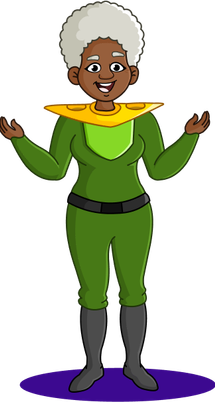
 146 Learners
146 LearnersLast updated on May 26th, 2025

Is 1419 a Prime Number?

The numbers that have only two factors, which are 1 and itself, are called prime numbers. Prime numbers are used in encryption, computer algorithms, and barcode generation. In this topic, we will be discussing whether 1419 is a prime number or not.
Is 1419 a Prime Number?
There are two main types of numbers based on the number of factors they have: prime numbers and composite numbers.
A prime number is a natural number that is divisible only by 1 and itself. For example, 3 is a prime number because it is divisible by 1 and 3.
A composite number is a positive number that is divisible by more than two numbers. For example, 6 is divisible by 1, 2, 3, and 6, making it a composite number.
Prime numbers have certain properties, such as:
Prime numbers are positive and greater than 1.
2 is the only even prime number.
They have only two factors: 1 and the number itself.
Any two distinct prime numbers are co-prime because they have only one common factor, which is 1.
As 1419 has more than two factors, it is not a prime number.

Why is 1419 Not a Prime Number?
The defining characteristic of a prime number is having only two divisors: 1 and itself. Since 1419 has more than two factors, it is not a prime number. Several methods can be used to distinguish between prime and composite numbers, including:
- Counting Divisors Method
- Divisibility Test
- Prime Number Chart
- Prime Factorization
Using the Counting Divisors Method
The counting divisors method involves counting the number of divisors a number has to determine if it is prime or composite. Based on the number of divisors, numbers are categorized as either prime or composite.
If there are only 2 divisors, the number is prime.
If there are more than 2 divisors, the number is composite. Let’s check if 1419 is prime or composite.
Step 1: All numbers are divisible by 1 and themselves.
Step 2: Divide 1419 by 2. It is not divisible by 2, as 1419 is an odd number.
Step 3: Divide 1419 by 3. The sum of the digits (1+4+1+9=15) is divisible by 3, so 1419 is divisible by 3.
Step 4: Continue checking divisors up to the square root of 1419. Since 1419 has more than 2 divisors, it is a composite number.
Using the Divisibility Test Method
We use a set of rules to check whether a number is divisible by another number completely. This is called the Divisibility Test Method.
Divisibility by 2: 1419 is an odd number, so it is not divisible by 2.
Divisibility by 3: The sum of the digits of 1419 is 15, which is divisible by 3. Hence, 1419 is divisible by 3.
Divisibility by 5: The unit’s place digit is 9, so 1419 is not divisible by 5.
Divisibility by 7: Double the last digit (9 × 2 = 18) and subtract it from the rest of the number (141 - 18 = 123). Since 123 is divisible by 3, but not 7, 1419 is not divisible by 7.
Divisibility by 11: The difference between the sum of the digits in odd positions (1+1=2) and even positions (4+9=13) is 11, which is not divisible by 11. Since 1419 is divisible by 3, it has more than two factors and is a composite number.
Using Prime Number Chart
A prime number chart is created using the "Sieve of Eratosthenes" method. In this method, follow these steps:
Step 1: Write numbers from 1 to 100 in a grid.
Step 2: Leave 1 unmarked, as it is neither prime nor composite.
Step 3: Mark 2 as a prime number and cross out all its multiples.
Step 4: Mark 3 as a prime number and cross out all its multiples.
Step 5: Continue this process to identify prime numbers. Through this process, we get a list of prime numbers from 1 to 100. Since 1419 is not in this list and is divisible by numbers such as 3, it is a composite number.
Using the Prime Factorization Method
Prime factorization involves breaking down a number into its prime factors. Multiply these factors to get the original number.
Step 1: We can write 1419 as 3 × 473.
Step 2: Check if 473 can be broken down further into prime factors.
Step 3: 473 is divisible by 11 (since the alternating sum of its digits 4-7+3 = 0, which is divisible by 11).
Step 4: Now, 473 = 11 × 43, both of which are prime. Hence, the prime factorization of 1419 is 3 × 11 × 43.

Common Mistakes to Avoid When Determining if 1419 is Not a Prime Number
Misconceptions about prime numbers can lead to errors. Here are some mistakes that might occur:

FAQ on Is 1419 a Prime Number?
1.Is 1419 a perfect square?
2.What is the sum of the divisors of 1419?
3.What are the factors of 1419?
4.What are the closest prime numbers to 1419?
5.What is the prime factorization of 1419?
6.How can children in Singapore use numbers in everyday life to understand Is 1419 a Prime Number??
7.What are some fun ways kids in Singapore can practice Is 1419 a Prime Number? with numbers?
8.What role do numbers and Is 1419 a Prime Number? play in helping children in Singapore develop problem-solving skills?
9.How can families in Singapore create number-rich environments to improve Is 1419 a Prime Number? skills?
Important Glossaries for "Is 1419 a Prime Number"
- Composite numbers: Numbers greater than 1 with more than two divisors. For example, 1419 is composite because it has factors other than 1 and itself.
- Prime factorization: Breaking down a number into its prime factors, such as 3 × 11 × 43 for 1419.
- Divisibility rules: Guidelines to determine if a number is divisible by another without performing division. For example, summing digits for divisibility by 3.
- Sieve of Eratosthenes: A method to find all prime numbers up to a certain limit by iteratively marking multiples of each prime starting from 2.
- Co-prime numbers: Two numbers with no common factors other than 1. For example, 11 and 13 are co-prime.
Explore More numbers
![Important Math Links Icon]() Previous to Is 1419 a Prime Number?
Previous to Is 1419 a Prime Number?
![Important Math Links Icon]() Next to Is 1419 a Prime Number?
Next to Is 1419 a Prime Number?
About BrightChamps in Singapore


Hiralee Lalitkumar Makwana
About the Author
Hiralee Lalitkumar Makwana has almost two years of teaching experience. She is a number ninja as she loves numbers. Her interest in numbers can be seen in the way she cracks math puzzles and hidden patterns.
Fun Fact
: She loves to read number jokes and games.




